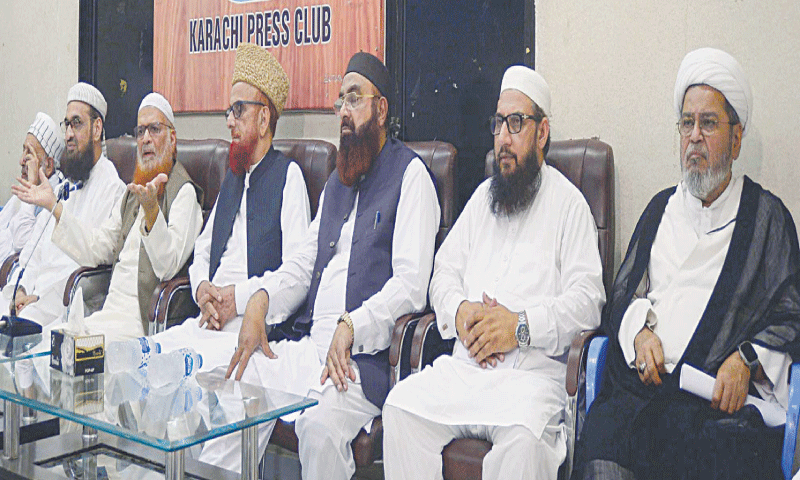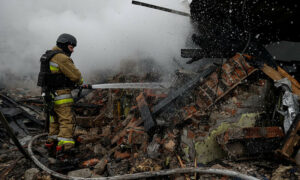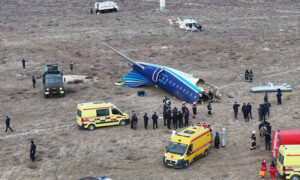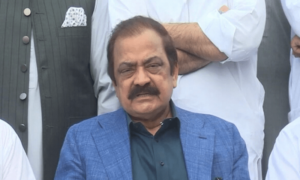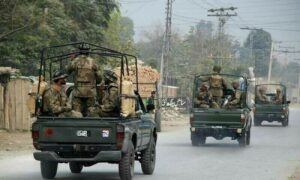KARACHI: In a rare display of harmony, all five bodies tasked with registering religious seminaries from the Sunni and Shia schools of thought have called for meaningful dialogue with the state to resolve any misunderstandings that may exist.
But while voicing support for the documentation of unregistered madaris, representatives
of their governing bodies warned that any attempt to proceed against seminaries in the garb of documentation could elicit a sharp reaction from them.
In a press conference after a meeting of the Ittehad-i-Tanzeemat-i-Madaris (ITM) — an umbrella body of all five organisations in the country which registered religious seminaries — ulema took exception to insinuations by the military’s chief spokesperson.
Ittehad-i-Tanzeemat-i-Madaris takes exception to DG ISPR’s assertion about half of all seminaries being ‘unknown’
In a recent press conference, Inter-Services Public Relations (ISPR) chief Lt Gen Ahmed Sharif Chaudhry had mentioned that more than half of all madressahs in Pakistan were not only unregistered, but their founders, management, students and sources of funding were all unknown.
Registering their indignation over the matter, key members of the ITM came up with a 12-point declaration, which mostly called for cordial relations between the state and madressahs.
They also vowed to protect the “freedom of thought and actions of the seminaries” and cautioned over any actions against these institutions on the basis of a “misunderstanding”.
Mufti Taqi Usmani, a renowned cleric and president of Darul Uloom Karachi, also shared details of the body’s meetings with Prime Minister Shehbaz Sharif and Army Chief
Gen Asim Munir, where they agreed on a mechanism for the registration of seminaries.
“But it’s so strange that when it comes to implementation of those agreed points, things come to a halt for unknown reasons,” he said.
Flanked by Mufti Muneebur Rehman, Allama Shabbir Hasan Maisami, Qari Muhammad Hanif Jalandhari and other clerics, Mufti Usmani also warned of resistance if the “madaris and their management are pushed against the wall”.
“We don’t want a clash,” he said. “But if we are pushed against the wall and aren’t heard, what options do we have? We strongly suspect that there’s external pressure which results in the failure of our talks. We are being constantly suppressed. This would not help anyone and it would always lead to severe consequences.”
Earlier, Mufti Muneeb read out the 12-point declaration of the ITM meeting, which demanded meaningful dialogue between the state and the representatives of seminaries in the country.
“Our experiences have proved that the real powers lie with the state. So we directly appeal to the army chief to personally review this whole situation and fix the attitude of state institutions with madaris, while considering their long-term results,” he said.
Published in Dawn, July 31st, 2024

